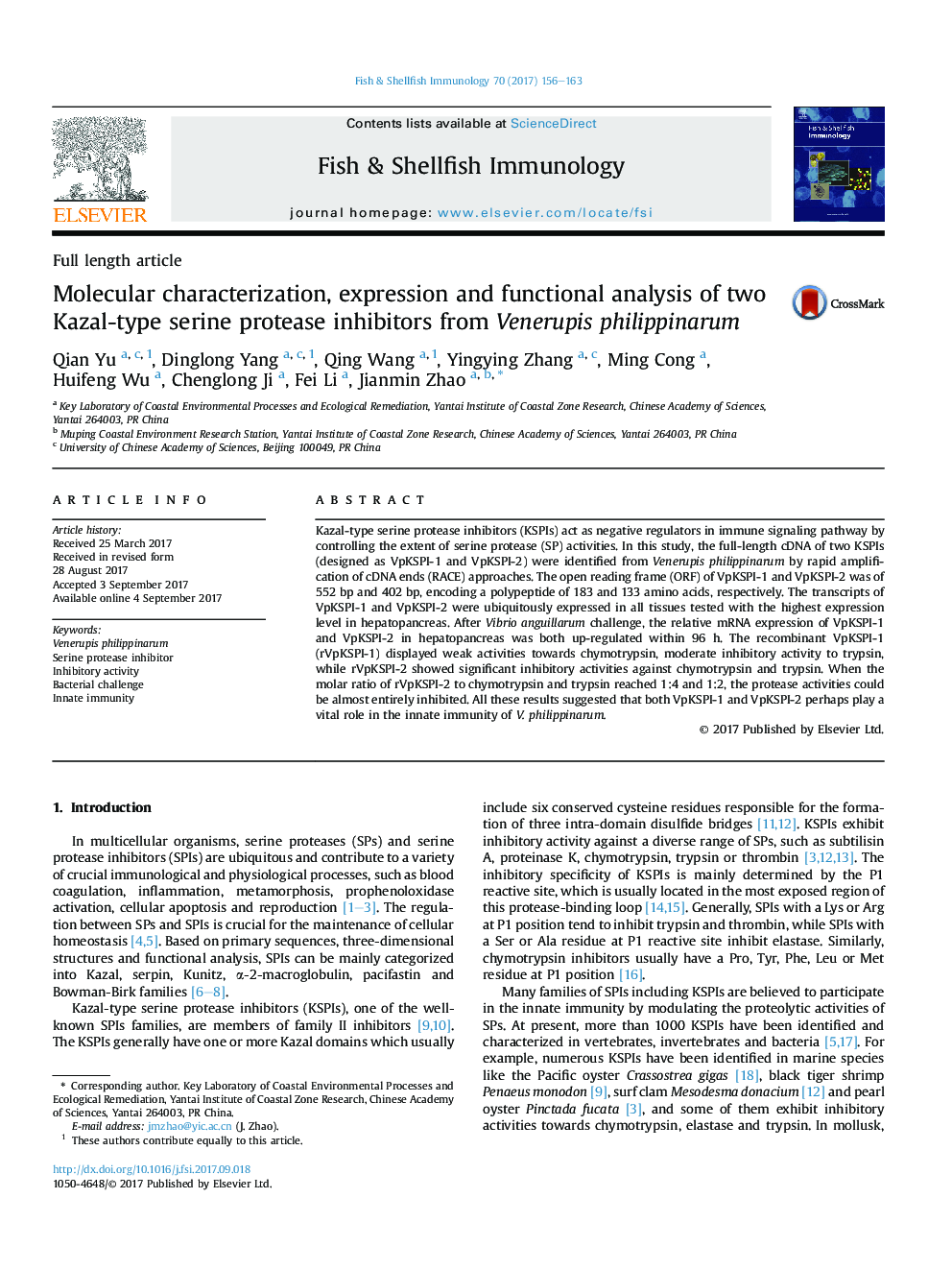| Article ID | Journal | Published Year | Pages | File Type |
|---|---|---|---|---|
| 5540271 | Fish & Shellfish Immunology | 2017 | 8 Pages |
Abstract
Kazal-type serine protease inhibitors (KSPIs) act as negative regulators in immune signaling pathway by controlling the extent of serine protease (SP) activities. In this study, the full-length cDNA of two KSPIs (designed as VpKSPI-1 and VpKSPI-2) were identified from Venerupis philippinarum by rapid amplification of cDNA ends (RACE) approaches. The open reading frame (ORF) of VpKSPI-1 and VpKSPI-2 was of 552 bp and 402 bp, encoding a polypeptide of 183 and 133 amino acids, respectively. The transcripts of VpKSPI-1 and VpKSPI-2 were ubiquitously expressed in all tissues tested with the highest expression level in hepatopancreas. After Vibrio anguillarum challenge, the relative mRNA expression of VpKSPI-1 and VpKSPI-2 in hepatopancreas was both up-regulated within 96 h. The recombinant VpKSPI-1 (rVpKSPI-1) displayed weak activities towards chymotrypsin, moderate inhibitory activity to trypsin, while rVpKSPI-2 showed significant inhibitory activities against chymotrypsin and trypsin. When the molar ratio of rVpKSPI-2 to chymotrypsin and trypsin reached 1:4 and 1:2, the protease activities could be almost entirely inhibited. All these results suggested that both VpKSPI-1 and VpKSPI-2 perhaps play a vital role in the innate immunity of V. philippinarum.
Keywords
Related Topics
Life Sciences
Agricultural and Biological Sciences
Aquatic Science
Authors
Qian Yu, Dinglong Yang, Qing Wang, Yingying Zhang, Ming Cong, Huifeng Wu, Chenglong Ji, Fei Li, Jianmin Zhao,
